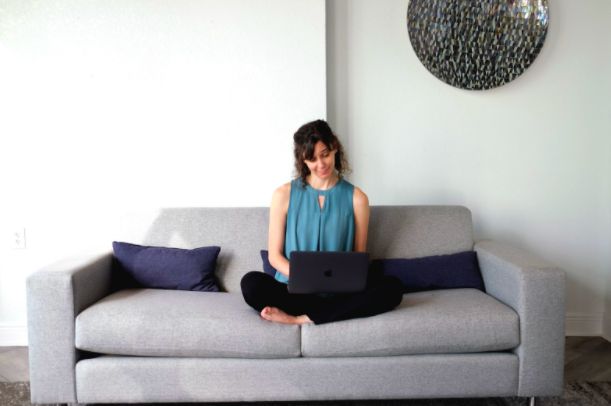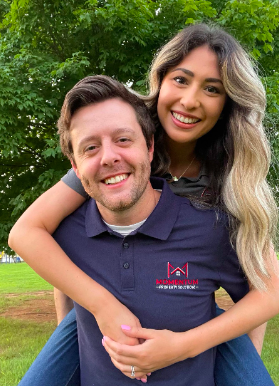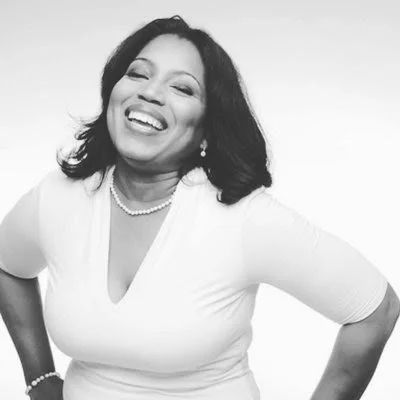Dana Sitar is a Certified Educator in Personal Finance®. She’s written about work and money for publications including Forbes, The New York Times, CNBC, The Motley Fool, The Penny Hoarder and a column for Inc. Magazine. Dana owns the content agency Dana Media, who’s flagship site, Healthy Rich, publishes stories from budding writers to diversify the voices in personal finance media.
Can you tell our readers about your background?
I’ve been writing and editing for online audiences since 2011, covering personal finance, careers and digital media. Along the way, I’ve always guided other writers in the craft and business of writing.
I’ve written about work and money for Forbes, the New York Times, Inc., CNBC, The Penny Hoarder, The Motley Fool and more.
I’m driven by a fundamental belief that work should be fun and money should be easy. I’m a bit of an evangelist for freelancing, remote work, positive workplace culture and financial empowerment.
I fell into personal finance writing in 2015 and worked on staff and in leadership for The Penny Hoarder, a perennial Inc. 500 company, for four years. That experience put me in the vanguard of personal finance media and gave me an early peek inside emerging financial services.
Years of consuming financial trend data, reading messages of gratitude from newly empowered consumers, reporting stories of everyday financial wins and testing hundreds of financial services solidified a love for this niche I never expected.
Since January 2020, I’ve run my own business as a personal finance writer, and expanded to create the Dana Media agency in 2021. In summer 2021, we launched the personal finance website Healthy Rich to publish stories that illuminate the diversity of our relationships with work and money.
What inspired you to start your business?
I started Dana Media to create a platform to make good work for writers and diversify the voices in personal finance media. Through our flagship site, Healthy Rich, we’re starting a new kind of conversation about money.
Throughout my years in personal finance media, I’ve realized we’re often answering the wrong questions. We’re writing guides about how to make a budget while education is defunded, parental labor is devalued, and employers legally discriminate on the basis of our gender, race and ability. Our audiences are ashamed of debt, even when it’s the only thing that gets them through college, feeds their children or affords them the “luxuries” necessary to compete with white men in the workplace.
We tend to ignore the nuances of our relationships with work and money, because money advice comes from a bunch of people with similar (privileged) identities and backgrounds. Through Dana Media, we’re putting more voices in the mix, and through Healthy Rich, our stories are shining a big, bright spotlight on those nuances.
Where is your business based?
We’re 100% online, based in the U.S. I work out of my home in Madison, Wisconsin, and our contractors work wherever they want!
How did you start your business? What were the first steps you took?
My business has grown organically as my career has grown. Dana Media grew out of a need for more writing capacity than I had myself, and Healthy Rich is a natural way for us to use our agency’s talent and expertise to create an asset of our own. We’re starting with content, because that’s in our speciality.
The next steps are building the first Healthy Rich product by talking with our customers to learn what they want to know about personal finance. In the meantime, we’re building the audience through lead generation. We’re taking everything one step at a time, so when we’re ready to launch the first product, we’ll have an eager audience in place.
What has been the most effective way of raising awareness for your business?
Launching Healthy Rich with a writing contest was a great way to promote the brand while immediately providing a service to both the audience and writers we want to serve. It lets us build a fledgling community based around the opportunities and platform we can offer, rather than around what we want to sell to customers.
What have been your biggest challenges and how did you overcome them?
Building a brand from scratch always comes with a financial challenge. I’m bootstrapping Healthy Rich, and I’ll have run the site for at least a year before launching the first revenue-generating product, so I have to continue to support myself and fund the business in the meantime — without burning out.
Dana Media continues to generate income through writing and consulting work. Before launching Healthy Rich, I focused on increasing rates, becoming more efficient and delegating as much as I could, so I could earn more in less time and free up time to build the new brand. Now I can earn a full-time income and pay contractors by working on client projects just three days a week, so I have plenty of time and funds available to invest in growing Healthy Rich.
How do you stay focused?
My focus hinges on the business’s core mission, which is the linchpin that keeps every other piece of the business in place. We want to make money better for everyone. That includes myself, our team, our clients and our audience.
For every project I want to pursue, I can ask, “How does this make money better for everyone?” For every milestone set and task assigned, we ask the same thing, so we can stay focused on that end goal: “How does this project/client/step make money better for everyone?” It’s a simple way to keep from getting sidetracked by shiny objects and bring my focus back to any task I have to complete, because I know exactly the impact it’s going to have on the bigger picture.
How do you differentiate your business from the competition?
My altruistic answer is that our mission sets us apart. The practical answer is that we’re developing a business model that intentionally goes against the norm of the industry, and it forces the brand to stay focused on the mission.
Dana Media’s mission is to make money better for everyone. We do that by hiring marginalized writers, like BIPOC, women, LGBTQ+ and people with disabilities, whose voices we don’t hear enough in personal finance media. And we share stories through Healthy Rich that illuminate the diversity of our relationships with work and money.
For Healthy Rich, we’re creating a business model that forces us to stay on mission.
Most personal finance sites are advertiser-supported. That lets them make 100% of their content free for readers, which is a nice service. But it means their customer is the advertiser, not the reader — no matter how much you try to drive home the mission in that scenario, you always run up against a battle between advertiser and reader interests. Since advertisers keep the business alive, their interests tend to win out.
Healthy Rich is intentionally advertiser-free, and our revenue plan is to sell courses. That means customers will have to pay for some of our personal finance advice, but we’ll still offer a ton of value for free so we can continue to serve folks even if our products aren’t right for them. More importantly it means we can always steer the business according to our customers’ best interests.
What has been your most effective marketing strategy to grow your business?
Healthy Rich is almost 100% content and email focused. We grow the community by creating valuable content, sharing it via email and encouraging our readers to help spread the word. In 2022, our marketing efforts will be focused on list building, because that’s the main way we’ll connect with our audience and market our paid products.
What's your best piece of advice for aspiring and new entrepreneurs?
Imagine the company you’d want to run if you had 100 employees (or 1,000), and shape your policies and systems to that vision from day one. I don’t think I want to run a company of 100s or even dozens of employees. But imagining the way I’d like that to look has encouraged me to develop and document systems as I go, and it reminds me to create the kind of work life I want — if I would want to offer ample flexibility, paid time off and benefits to employees, why not make sure I can do that for myself and contractors from the beginning?
What's your favorite app, blog, and book? Why?
Right now, I’m in love with Jenny Blake’s Free Time book and podcast. The philosophy behind them spoke to me right when I was turning from a solo contractor into a business owner. I don’t rely on many apps for business, but I use the Calm app for daily meditation, and that’s been an important contribution to a productive daily routine.
What's your favorite business tool or resource? Why?
In the short time since it launched in beta, I’ve come to totally rely on Google Tables. It’s my to-do list, bookkeeping software, reminders, CRM and whiteboard for when I need to brain dump and capture information.
As I’ve expanded to add team members, it’s a perfect lean project management tool and content calendar. I love that it’s accessible as part of a Google Workplace account, and our writers can collaborate with us for free as long as they have a Gmail account.
Who is your business role model? Why?
I’ve been a huge fan of Jenny Blake while she was working on her first brand, Life After College, more than a decade ago. I’m loving her work through Free Time now.
Alexis Grant was an early influence and mentor for me, and I’ve had the chance to work with her on several projects over the years. I continue to follow and be influenced by her work, and I’m loving what she’s adding to the business world through her latest company, They Got Acquired.
I’ve learned a ton from Marie Forleo in the past couple of years, both from doing B-School and from following how she runs her own business (disclaimer: I did some contract work with Marie Forleo International a couple of years ago). I love the intersection of personal development and business building.
How do you balance work and life?
I don’t keep a to-do list; I keep a calendar (in my Google Tables!). When I’m faced with an opportunity, assignment or task, I slot it into my calendar with a “to-do” date. I keep a four-day workweek, so the task has to fit into one of four available days each week. This makes it easy to avoid overscheduling and keeps work from spilling into evenings and weekends.
What’s your favorite way to decompress?
I take a walk at the end of most work days. Walking through any city I’m in is one of my favorite activities — I can listen to a podcast or audiobook, watch people, get fresh air and move my body. It’s a perfect way to shake off the stiffness and focus of a work day.
What do you have planned for the next six months?
The first half of this year will be focused on building the Healthy Rich community through content and email. And this fall, we’ll launch the first Healthy Rich course — EASY Money. So my time for the next six months is laser-focused on course content creation and developing a marketing plan for the course.
How can our readers connect with you?
Follow Healthy Rich by subscribing via email: https://www.healthyrich.co/subscribe and you can follow my update on social media @danasitar .










